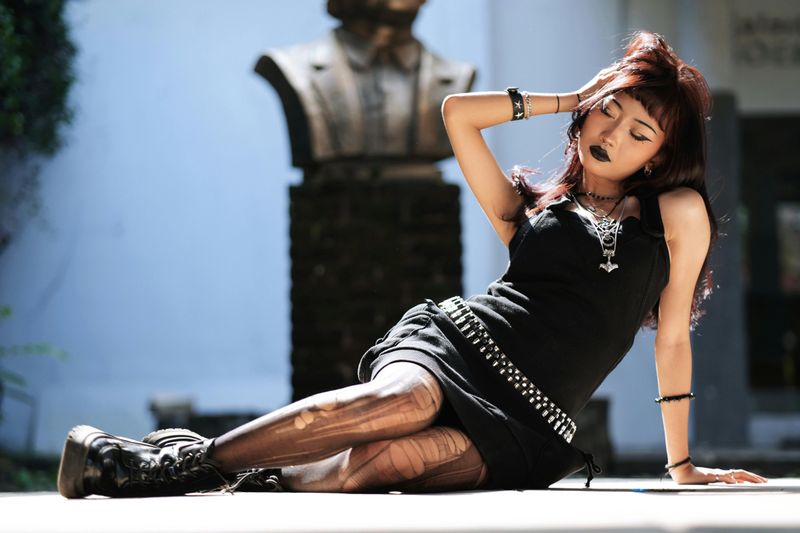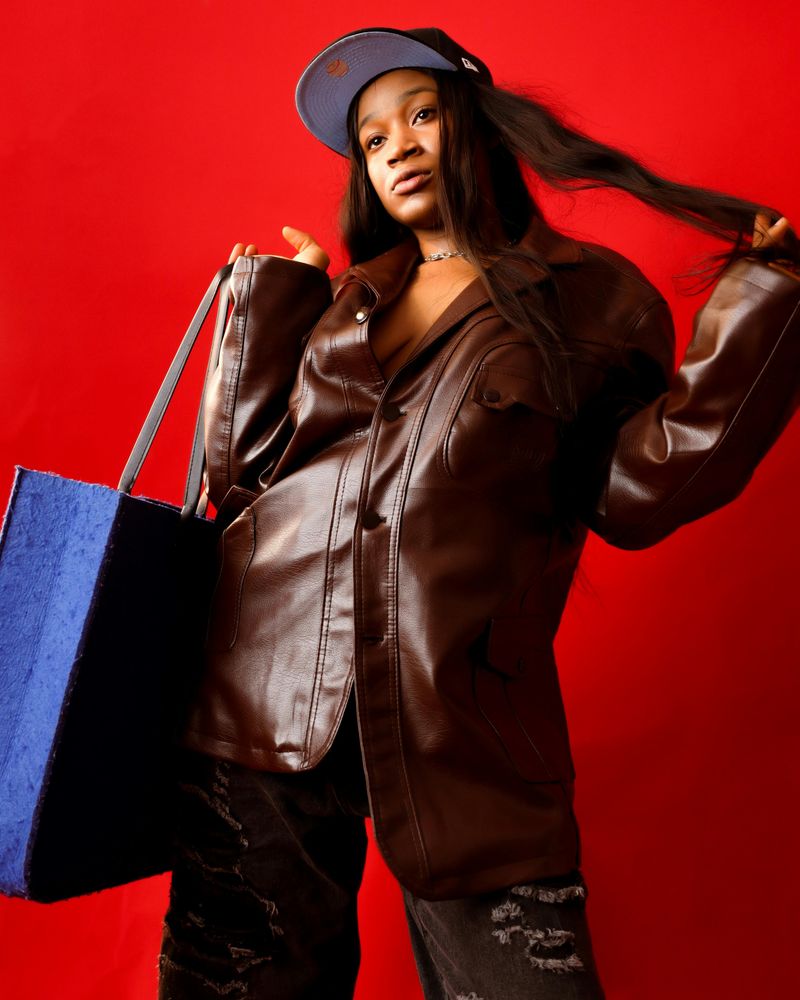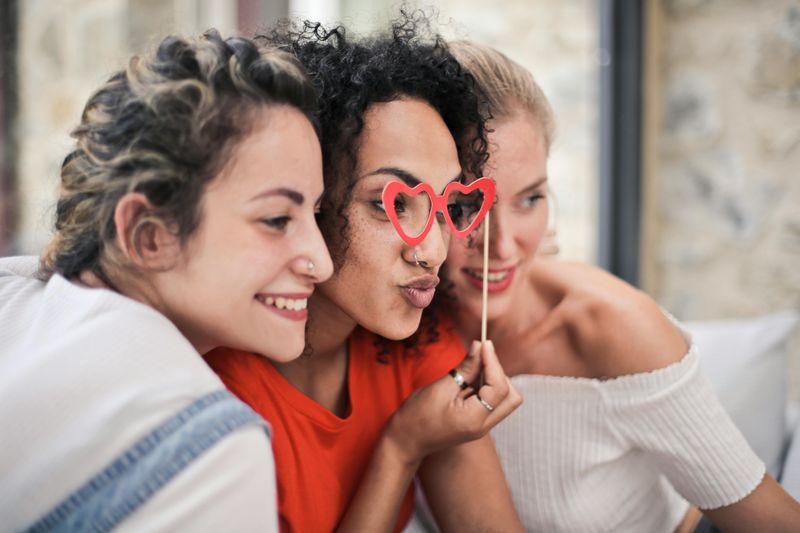11 Expressions That Radiate “Pick-Me Girl” Energy

Social media has introduced us to many personality types, including the “pick-me girl” – someone who seeks validation by distancing herself from other women. While everyone deserves to express their individuality, certain phrases can come across as putting down other girls to seem more appealing. Recognizing these expressions helps us understand how language shapes our relationships and self-image.
“I’m not like other girls”

This classic phrase suggests that being different from other women is inherently better or more valuable. Many people use this expression thinking it makes them sound unique and special.
However, it accidentally implies that “other girls” are somehow inferior or boring. The statement creates an unnecessary competition between women instead of celebrating individual qualities.
Everyone has unique traits and interests that make them special. Rather than comparing yourself to others, focus on describing your specific hobbies, talents, or perspectives that genuinely reflect who you are as a person.
“I just get along with guys better”

Some people believe that having mostly male friends makes them easier to understand or less complicated than other women. This statement often comes with the assumption that female friendships are naturally more difficult or dramatic.
While it’s perfectly normal to have friends of different genders, dismissing an entire gender suggests underlying biases. Male and female friendships both offer unique benefits and challenges.
Strong friendships depend on shared interests, mutual respect, and compatible personalities rather than gender. Building diverse friendships with people who share your values creates the most fulfilling social circle possible.
“Girls are so much drama; I can’t deal with them”

This sweeping generalization paints all women as overly emotional or conflict-prone. People who say this often position themselves as more rational or level-headed than their female peers.
Drama exists in all types of relationships and social groups, regardless of gender. Men can be just as emotionally complex or create interpersonal conflicts as women do.
Rather than avoiding entire groups of people, focus on finding individuals who share your communication style and values. Healthy relationships require good boundaries and conflict resolution skills, not gender-based assumptions about personality traits.
“I don’t even wear makeup” (with judgment)

Going makeup-free is a personal choice that deserves respect, but using it to judge others crosses a line. This phrase often carries an undertone of superiority over women who enjoy cosmetics.
Makeup represents creativity, self-expression, and artistry for many people. Some wear it for confidence, others for fun, and some prefer a natural look – all choices are equally valid.
True confidence comes from accepting your own preferences without putting down others’ choices. Supporting other women’s decisions about their appearance, whether natural or enhanced, creates a more positive environment for everyone to feel comfortable in their own skin.
“I’d rather eat a burger than a salad” (as proof of being different)

Food preferences become problematic when used as evidence of being more “real” or relatable than other women. This statement suggests that enjoying traditionally feminine foods somehow makes someone fake or pretentious.
People choose their meals based on taste, health goals, cultural background, and personal preferences. Neither burgers nor salads define someone’s personality or authenticity as a person.
Food shaming creates unnecessary judgment around eating habits. Celebrating your own preferences without implying that others are wrong for their choices shows genuine confidence and respect for individual differences in lifestyle and dietary needs.
“All my friends are guys”

Having predominantly male friendships isn’t inherently problematic, but broadcasting it as a badge of honor can be. This statement often implies that female friendships are less valuable or worthwhile.
Friendships should form naturally based on shared interests, compatible personalities, and mutual respect. Gender shouldn’t be the primary factor in choosing friends or something to brag about online.
Diverse friend groups offer different perspectives and experiences that enrich your life. Both male and female friends bring unique qualities to relationships, and limiting yourself to one gender means missing out on meaningful connections with amazing people.
“I don’t do girly things”

Rejecting activities labeled as “girly” suggests that feminine interests are somehow inferior or embarrassing. This phrase dismisses entire categories of hobbies and interests that many people genuinely enjoy.
Activities don’t have gender requirements – anyone can enjoy sports, crafts, video games, or beauty treatments. Labeling interests as masculine or feminine limits everyone’s ability to explore new experiences.
Authentic self-expression means pursuing what genuinely interests you, regardless of social expectations. Supporting others’ interests, even if they don’t appeal to you personally, creates space for everyone to enjoy their hobbies without judgment or shame.
“I can’t stand shopping or fashion”

Disliking shopping and fashion is completely valid, but using these preferences to seem superior creates unnecessary division. This statement often carries judgment toward people who enjoy these activities.
Fashion and shopping represent creativity, self-expression, and sometimes social bonding for many individuals. These interests require skill, knowledge, and artistic vision that deserve recognition and respect.
Personal preferences make us unique without making us better than others. Respecting different interests and hobbies, even ones that don’t appeal to you, shows maturity and genuine confidence in your own choices and lifestyle preferences.
“I’m such a tomboy; I’m not into girly stuff”

Being a tomboy is a legitimate identity that many people embrace proudly. However, using this label to distance yourself from anything considered feminine can reinforce harmful stereotypes about gender roles.
Tomboyish traits and feminine interests aren’t mutually exclusive – people can enjoy sports and makeup, or video games and fashion. Personality exists on a spectrum rather than in rigid categories.
Embrace your authentic self without putting down other expressions of identity. Supporting all types of self-expression, from ultra-feminine to tomboyish and everything in between, creates space for everyone to feel comfortable being themselves.
“I don’t understand women”

This phrase positions the speaker as somehow separate from or above other women, implying that female behavior is inherently confusing or irrational. It suggests that women are a mysterious species rather than individuals.
Women, like all people, have diverse personalities, motivations, and communication styles. Making broad generalizations about any gender oversimplifies human complexity and creates unnecessary barriers to understanding.
Building empathy and communication skills helps you connect with all types of people. Rather than dismissing entire groups, focus on understanding individuals and their unique perspectives, backgrounds, and experiences that shape their worldview.
“I’d rather play video games than talk about makeup”

Gaming is an amazing hobby that deserves celebration, but contrasting it with traditionally feminine interests creates unnecessary competition between different types of fun. This comparison suggests one activity is more worthwhile than another.
Both gaming and beauty discussions require skill, knowledge, and passion from their enthusiasts. These interests can coexist peacefully and even complement each other in someone’s life.
Celebrate your hobbies without diminishing others’ interests. Many people enjoy both gaming and beauty, or neither, or completely different activities altogether. Supporting diverse interests creates communities where everyone feels welcome to share their passions freely.

Comments
Loading…